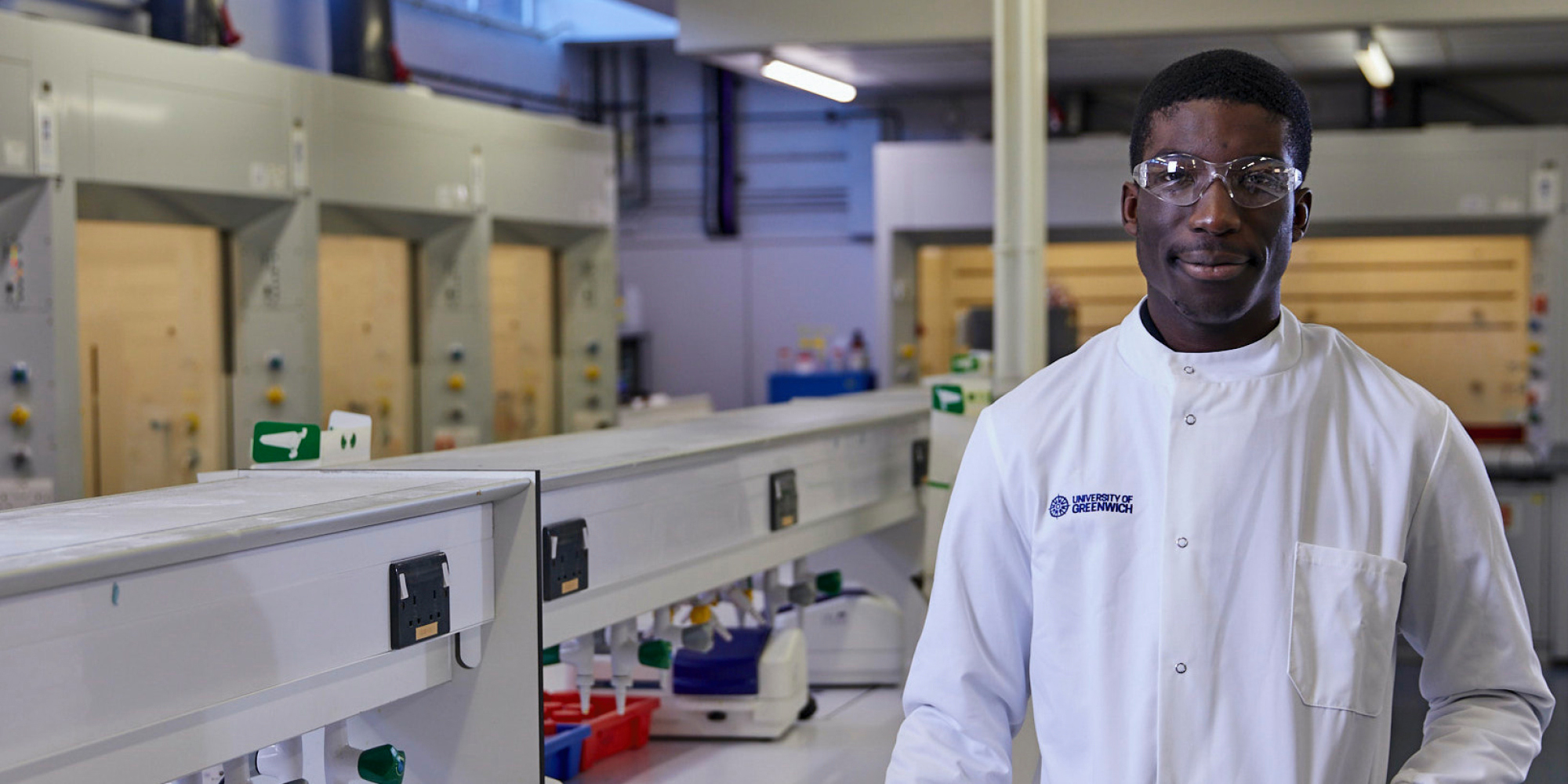Choose from professionally accredited programmes
Specialist undergraduate degree programmes from the School of Science allow students to focus on the subject areas of most interest to them, with options for full and part-time study in chemistry, human nutrition and health and pharmaceutical science, and full-time study in biology, biomedical science, and forensic science. Students can also study with a foundation year or sandwich year on many of these programmes. The university’s MBiol programme comes with an integrated Master’s level of study.
Many of the university’s science degrees have been professionally accredited, meaning they have been recognised by professional bodies, for example BSc Biomedical Science has been accredited by the Institute of Biomedical Science and BSc Human Nutrition and Health has been accredited by the Association for Nutrition.
I was specifically looking for courses accredited by the Association for Nutrition, and after attending an Open Day, I realised that I preferred the welcoming atmosphere on the Medway Campus.
Shona Reid, BSc Human Nutrition (now titled BSc Human Nutrition and Health), MSc Food Innovation, PhD in Science student
Tailor your learning to your career goals
On these programmes, students will study core modules designed to support them in gaining essential knowledge and skills for a career in science. Optional modules on courses such as BSc Biology and BSc Chemistry allow students to tailor their studies and gain specialisms relevant to their interests and career goals. For BSc Biology, these include modules on cancer biology and ecology, while BSc Chemistry students can take up advanced organic or inorganic chemistry.
My programme at Greenwich gave me the fundamental learning, through its tailored modules, for my subsequent training position in sleep physiology.
Jack Woolcomb, BSc Biology graduate 2019, Senior Paediatric Sleep Physiologist
The School of Science also welcomes guest lecturers throughout the year to speak to students and offer unique insights. For example, practical forensic digs in the forensic science department have been supported by guest archaeologists and anthropologists, while in January 2023 the university welcomed Professor Bindhu Gururajan, Senior Principal Scientist at Novartis in Switzerland to deliver a talk on drug product development and process development.
Excellent labs and inclusivity
In 2023, a new chemistry laboratory and biomedical science laboratory were completed. Other facilities on the Medway Campus include an entomology facility, examination rooms for students on forensic science courses, and spacious, well-equipped general science and chemistry/pharmaceutical science laboratories. In these labs, students will develop the skills they need for their career and can get involved in exciting project work, for example final year projects can be a chance to learn about and support some of the pioneering research taking place on campus.
I’ve made many long-lasting friendships, met many different people, managed to expand my own LinkedIn profile with the help of the university, and increased my connections to include extremely successful people.
Mupeta Njebele, BSc Pharmaceutical Sciences
For students wishing to further their learning after graduation, the School of Science also offer Master's degrees in food innovation, formulation science, haematology and more, and MRes degrees in a range of subjects.




